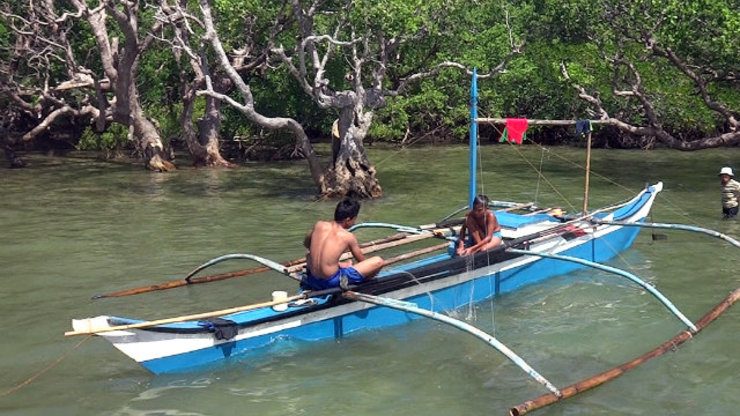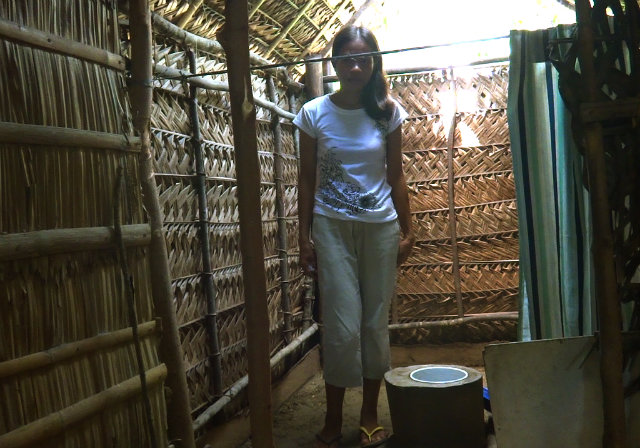SUMMARY
This is AI generated summarization, which may have errors. For context, always refer to the full article.

MASBATE, Philippines – Changing an old habit and practice is never easy but with collective action, anything is possible.
Communities in the island province of Masbate proved this maxim when they decided to forever stop the practice of open defecation and adopted, instead, healthier hygiene and sanitation practices. (READ: A thirsty world, PH water problem)
Serious threat
Open defecation is an unhealthy practice that poses serious threats to human health as it is a known cause of water and food contamination resulting in the spread of infectious diseases.
After roughly three months, rural health units and external verifiers from the United Nations Children’s Fund (UNICEF) and Action Contre La Faim (ACF) International certified Barangays Talib, Matalang-talang and Cabangcalan in Aroroy and Barangay Poblacion East in Milgaros, Barangay Cantorna in Monreal, and Barangay Taberna in Cawayan, as the first Zero Open Defecation (ZOD)-certified barangays in Masbate.
Masbate was identified as an area of concern for sanitation due to the high number of people who do not have access to sanitary toilets.
“In the Philippines, 1 out of every 12 persons are open defecators. Unfortunately, here in Masbate it is 1 in every 2 persons. That is why we chose Masbate as a pilot area for the project,” said Katrina Ebora, Communication for Development officer of UNICEF Philippines’s WASH section.
Community-led

To achieve the ZOD status, a community has to stop defecating in the open by constructing toilets with provision for water supply and soap.
Humanitarian organizations UNICEF and ACF International provided technical assistance by employing the approach called Community-led Total Sanitation (CLTS), a participatory demand creation strategy to help the people realize the need to stop defecating in the open.
CLTS propelled the citizens to create a collective demand for sanitation. They formed Water, Sanitation and Hygiene (WASH) committees that mobilized the neighborhoods to construct toilets, ensure that the barangay is free from public defecation, and monitor the status of the their respective puroks or sitios (barangay division).
Barangay Matalang-talang in Aroroy is the second to be ZOD-certified. People in this island barangay used to defecate in the mangroves when it’s low-tide or in the bushes mostly at night.
Barangay captain Allan Toledo encouraged his constituents to support the program. In a span of three months, Barangay Matalang-talang constructed 229 toilets for 1,860 people with little or no money involved. (READ: Death from lack of proper sewerage)
The local government of Aroroy recognized the success of the three barangays and rewarded them with cash incentives during the celebration of their town fiesta last October 24.
Toledo recounted they almost did not meet their target. Constructing toilets are not the priority of his constituents, he added. But when some community folks learned their neighbors already had toilets, others followed suit and did not even wait for the prompting of the barangay leaders.
Every resident of Matalang-talang has access to a makeshift toilet and the open spaces are free of feces.
Toledo said he wants his constituents to have the ceramic or water-sealed toilets which are more expensive but durable. “For my part, I want their toilets to be improved for them to feel good. We allocate even a small budget for that, around P50,000 for 2015,” he added.
Local government support
Aroroy Mayor Enrico Capinig noted the difference between the top-down approach to sanitation and the present bottom-up, community-led effort. He said their first initiative failed because the program was not participatory.
“Ang natutunan ko talaga, hindi pwedeng isang tao lang, isang mayor lang. Kailangan buong barangay, kailangan buong departamento na may malasakit sa health kagaya ng UNICEF, ACF at Department of Health (DOH),” Mayor Capinig said. (I learned that not one person or mayor can do this alone. The whole barangay and other stakeholders in health like UNICEF, ACF and the DOH need to be involved.)
Capinig said he used to spend millions each year for sanitation program that yielded unsatisfying results. Now, he advocates the ZOD Program to other municipalities in Masbate.
UNICEF believes that through “bayanihan” and participatory actions the Philippines can totally address the 8% of the population who do not have access to sanitary facilities. – Rappler.com
Anthony Esguerra is a freelance writer and a former Move Ambassador.
November 19 is World Toilet Day.
Add a comment
How does this make you feel?





There are no comments yet. Add your comment to start the conversation.